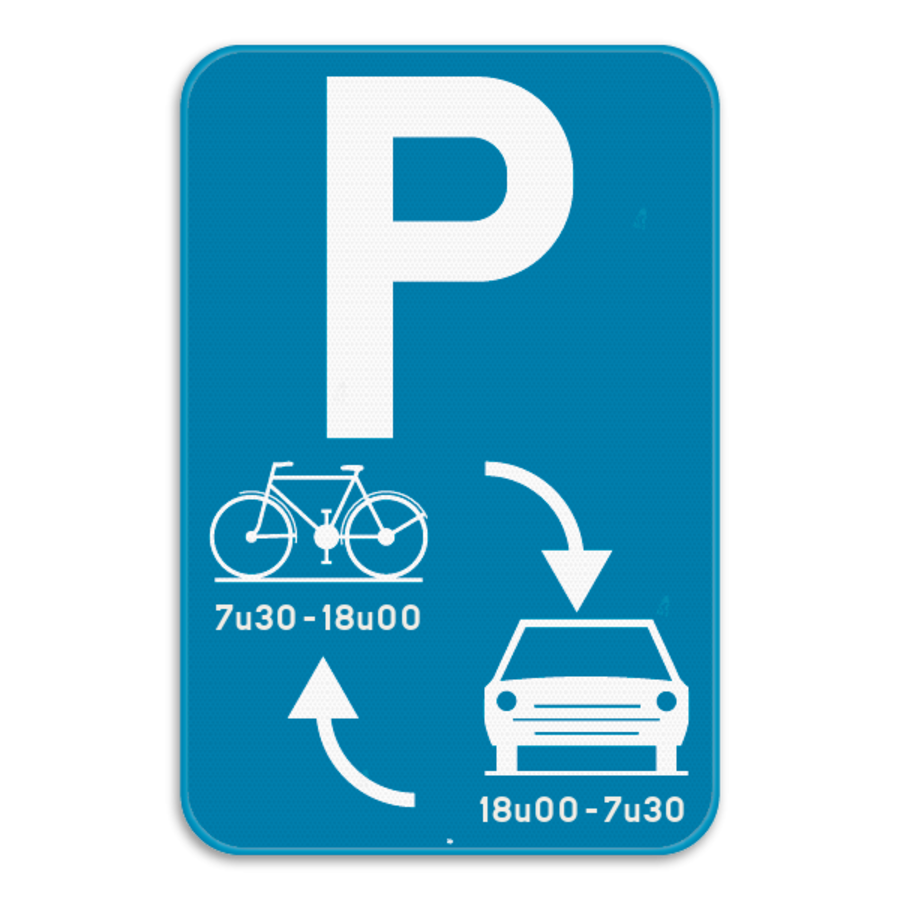The solution is simple, bicycles during the day and vehicles at night. The flexible use of parking spaces allows institutions and their visitors to be better served, while local residents can also benefit from the parking facilities outside these peak times.
To tackle parking problems, the city of Ghent is launching a pilot project for flexible parking at four locations where parking pressure is considerable: a daycare center, a mosque and two schools. The city council will closely evaluate the project for six months, and if successful, the system could also be deployed in other busy locations.
A new 12 meter long parking space has been constructed at the De Palmboom daycare center in Balsamierenstraat. Bicycles can park here from Monday to Friday from 7.30:18 am to 18 pm, while cars can use the space between 7.30 pm and 6:11 am and at weekends. Kazemattenstraat has also been given a flexible parking space that is 17 meters long. On Fridays, between XNUMX a.m. and XNUMX p.m., this place is exclusively intended for visitors to the Eyüp Sultan Cami mosque to store their bicycles. At all other times the section is available for cars.

In a six-month pilot project, the city is committed to dynamic use of parking spaces at schools, a daycare center and a mosque, supported by a new traffic sign.
Montessori school Klimop in Theresianenstraat and primary school De Muze in Gravin Johannastraat have transformed their existing bicycle parking spaces into flexible zones. From Monday to Friday, between 7.30:18 am and XNUMX pm, these places are reserved for cyclists. Outside these times, during weekends and school holidays, cars can use this parking space.
The pilot project also introduces a new traffic sign that has been part of the Belgian road code since October last year. This sign informs road users who is allowed to park at what time. Violations can lead to verbalization. Filip Watteeuw, Ghent's Alderman for Mobility, sees the new sign as an opportunity to better meet the needs of the neighborhood, especially around schools where the demand for bicycle parking spaces increases during the day. Federal Minister of Mobility Georges Gilkinet praises Ghent for the practical application of the new traffic sign and is busy adapting the road code for a better balance between the different road users.
pilot project
If this pilot project proves successful, this model could also be interesting for other cities that struggle with the limited available space and the growing pressure on both bicycle and car parking facilities. Flexible parking in Ghent then serves as a valuable example of how a city can respond to the changing needs of its residents, without penalizing any of the means of transport.



